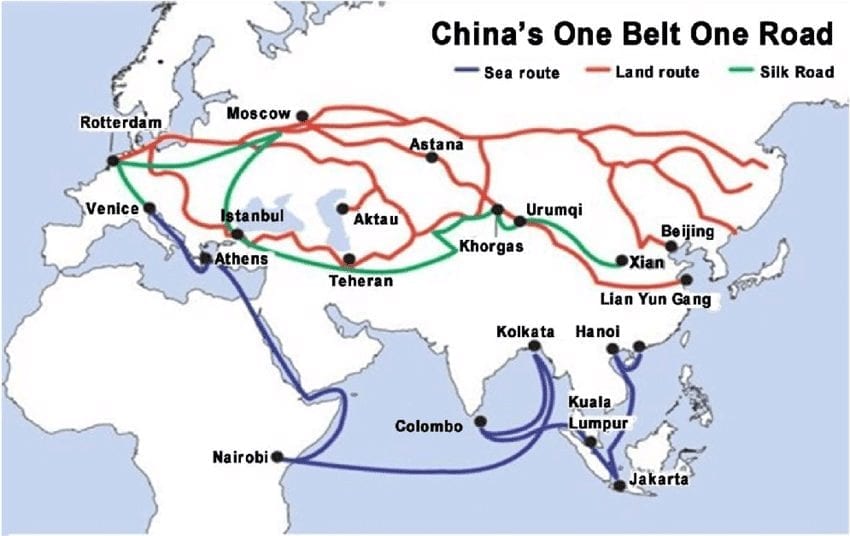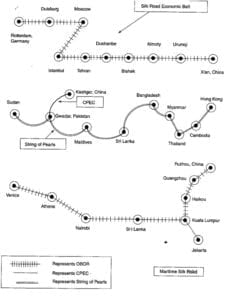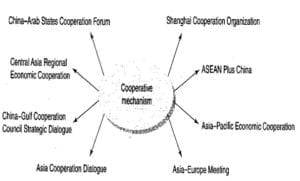Business
‘One Belt One Road’ (OBOR): An external challenge to India’s economy and security

In recent times China has emerged as a strong player in this new unfolding global system.
It has launched a new initiative called One Belt and One Road initiative. The aim of the OBOR project is to create an economic land belt and marine link to redirect Chinese capital to develop infrastructure and trade capacity of ASEAN, Europe, Central Asia, and Africa.
The concept of OBOR is based on certain principles where the broad aim is to establish multi-dimensional and multi-tiered connectivity to tap the market potential of the region’s leading countries to aggressively undertake job creation and promotion of consumption. It has the plan to involve more than 60 countries in the project and also plans to negotiate a free trade agreement with all of them, the entire OBOR.

OBOR

OBOR, CPEC, String of Pearls
China Pakistan Economic Corridor (CPEC)
The China –Pakistan relations, over a period of time, have evolved to the extent that some scholars aptly call Pakistan, China’s Israel. Today, china clearly believes that Pakistan has a core part to play in its transition to global power and lies at the heart of China’s plan for ports and railways and for oil and gas. The CPEC comes at a time of growing geopolitical ambition of china, being partly a strategic gambit. One of the important aims of CPEC is to bolster the Pakistani Economy by addressing the Key infrastructure constraints in Pakistan.

CPEC as a subset of OBOR
In March 2015, China’s National Development and Reform Committee announced the OBOR initiative. The CPEC is part of OBOR and was formalized in April 2015 between Pakistan and China. This concluded with around 51 memorandums of understanding with a total investment of 46 billion dollars. CPEC has emerged out of the Chinese principle of co-operative mechanism with different parts of the world to increase its trade. It has identified the China-Pakistan Economic Corridor and Bangladesh-China-India–Myanmar(BCIM-EC) as the key initiatives broadly associated with OBOR.
India’s official position is that CPEC passes through the Pakistan Occupied Kashmir(PoK), which is a disputed territory, and land that has been illegally occupied. India asserts that China has not shown any understanding of India’s sovereign claims and thereby it will not be part of the OBOR. Again for India, OBOR is a national initiative of China to enhance its connectivity all over to ensure that it is able to sustain its low-cost manufacturing programme which is declining due to rising domestic wages in China. This is by integrating itself to global value chains.
India has now to decide whether it would allow political differences to prevail over economic interaction.





























